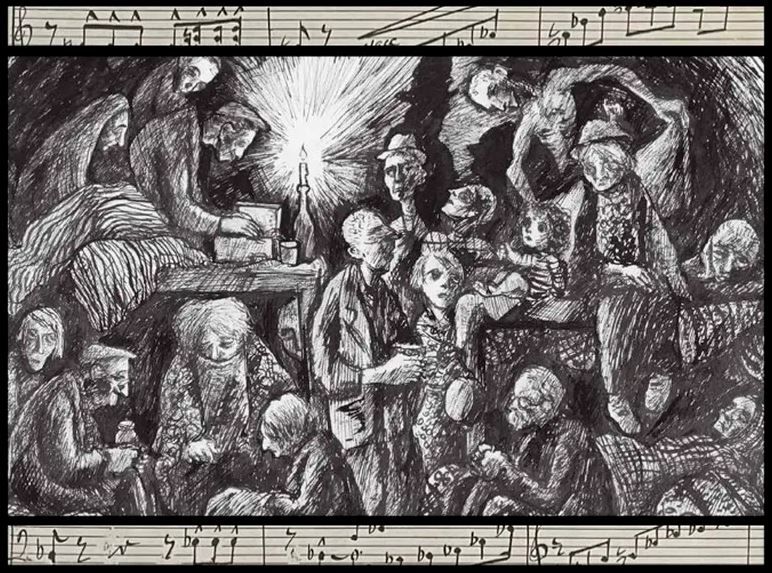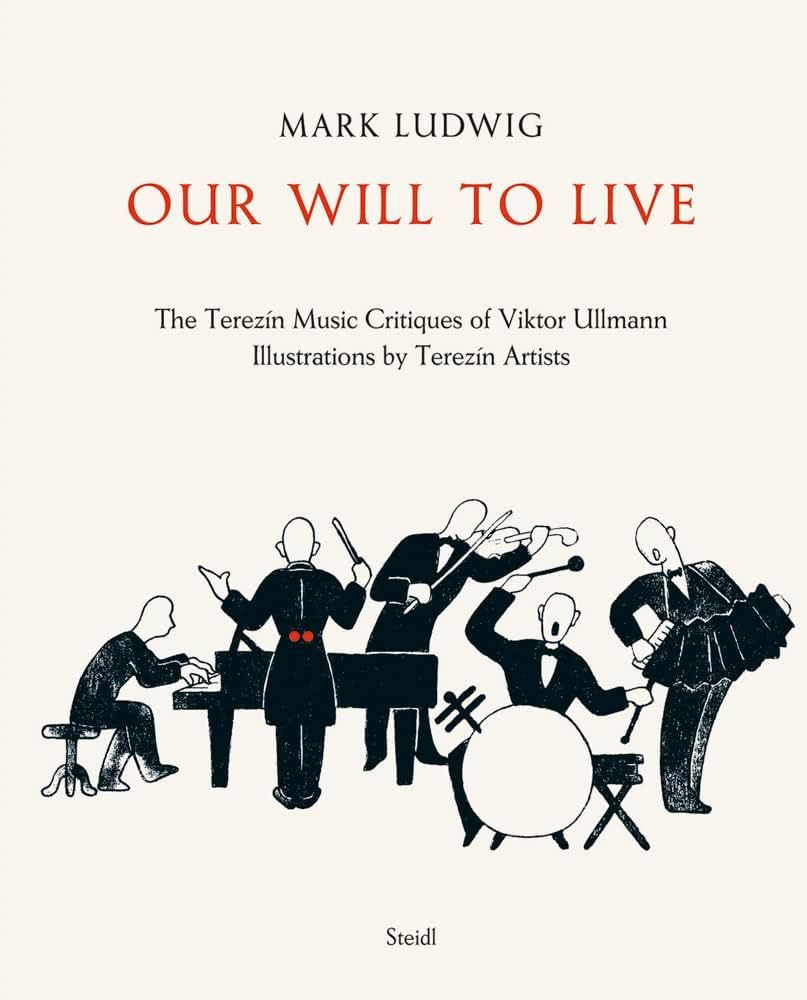During World War II, Terezin, a village near Prague, was the site of a concentration camp for Jewish artists and musicians whose work the Third Reich considered “impure” and “degenerate.”
From 1941 until 1945, more than 30,000 died at Terezin itself – and more than 87,000 were sent from there to death camps. Prisoners at Terezin were forced to do hard, manual labour – but the musicians would secretly come together to make what music they could. When their late-night concerts were discovered, the Nazis “staged” performances by the prisoners to show the world how well they were treating the Jews – once the Red Cross left, the deportations from Terezin to the death camps resumed.

Composers imprisoned at Terezin wrote many works that were performed by their fellow prisoners. The music reflects their experiences at Terezin and the hope they clung do. Many expected that their music would die with them.

But twenty years ago, Mark Ludwig, who plays viola with the Boston Symphony Orchestra, read about the music created at Terezin and began an almost DaVinci Code-like search for the lost music. Ludwig made dozens of trips to the former Czech Republic, searching through boxes in makeshift archives and attics, until he found what he was looking for: sheet music written at Terezin. Ludwig then recruited musicians, composers, academics and survivors of Terezin to reconstruct, perform and record these works, almost lost forever.
Ludwig founded the Terezin Music Foundation to continue what he began. The foundation sponsors symposiums and organizes concerts, but its core mission over the past two decades has been to commission artists to complete and preserve the music of Terezin, which Mark Ludwig has painstakingly copied and archived.
“For me this has been an almost spiritual mission.” First, this music was and remains unbelievable. Second, these are people whose lives, like so many victims of the Holocaust, were destroyed. But further, when their minds could have been on anything else, anything at all, like self-preservation, they found the will to continue their craft and continue to make and perform music in the worst possible circumstances. And that needs to be remembered.”
Mark Ludwig’s work to preserve the music of Terezin mirrors the prophetic ministry of Jesus in proclaiming the reconciling compassion of the Father’s kingdom. In his Gospel, the evangelist Mark chronicles Jesus’ journey to proclaim the coming of God’s reign among us. In the music that they re-construct and preserve, Mark Ludwig and his colleagues save for the world works of great hope that witness the triumph of justice over hatred and hope over despair. As disciples of Jesus in our own time and in our own place, we are called to that same work: to proclaim God’s presence in our midst, to be agents of healing and restoration for the fallen, to enable God’s reconciliation and forgiveness to heal and restore.